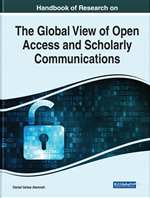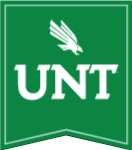In scholarly publishing, open access (OA) has become widely associated with journal publishing, but what many do not realize is that OA models are also available for full book publishing, even if the book was originally published behind a paywall, meaning that it would be available only through a subscription and not freely available as OA.
The OA model for books is beneficial as it makes all the work (all chapters within the book) freely and immediately available online without any reading or subscription fees, a great benefit to researchers, academicians, and students. It aids with the discoverability and citation impact of the book, thus allowing the research to be used and further expanded upon. Due to their wide availability, OA books have an increased potential of being indexed in top indexes including Scopus and Web of Science Book Citation Index and they can also benefit from increased exposure in thousands of open access repositories and directories hosted all over the world.
Book publications can be published or converted to open access at any time:
- The initial proposal of a new book publication for consideration under OA
- Deciding to convert a book project to OA during the development period
OR - Converting the book publication to OA after it has already been released
Additionally, more recently librarians have been the bridge between publisher and researchers in continuing to advance the open access publishing movement and significantly aid in generating more open access research for all to consume, share, and build upon.
Specifically, librarians are:
- Boosting the transition of open access through publisher partnerships
- Supporting crowdfunding approaches toward open access funding for publications (especially books)
- Enhancing the collaboration between scholarly communications librarians and open access publishing
 | |
| Handbook of Research on the Global View of Open Access and Scholarly Communications | Prof. Daniel Gelaw Alemneh (University of North Texas, USA)
©2022 | 300 pgs. | EISBN: 9781799898078 | - Published under Platinum OA through IGI Global’s
Transformative OA Initiative - Suitable for Educators, Researchers, Library
Professionals, & More - Covers Topics such as Open Education Resources,
Scholarly Communications, & Equity - Excellent Addition to Your Institution’s Library
|
|
| |
|
| Funding Information: This book is published under Platinum Open Access through IGI Global's Transformative Open Access Initiative with University of North Texas, USA. |  |
|
| | New Models of Higher Education: Unbundled, Rebundled, Customized, and DIY | Aaron M. Brower (University of Wisconsin Extended Campus, USA & University of Wisconsin-Madison, USA) and Ryan J. Specht-Boardman (University of Wisconsin Extended Campus, USA)
©2022 | 545 pgs. | EISBN13: 9781668438114 | - Includes over 20+ Chapters of Timely Research
- Suitable for Policy Makers, Academicians, Instructors, & More
- Covers Topics such as Curriculum Development, Lifelong Learning, & Skills-Based Education.
- Excellent Addition to Your Institution's Library
|
| |
|
|
Funding Information: This book is published under Platinum Open Access through sponsorship and funding from the Lumina Foundation and Walmart.
|
Each of these open access books can easily be integrated into a library’s collection as they are freely available to share and download via the Creative Commons (CC BY 4.0) licensing. It is encouraged that if interested, you reach out about further collaboration on future open access books or to support faculty with their current open access projects.

How Do Book Processing Charges (BPCs) Work?

Regardless of the point of conversion to OA, an open access book processing charge (BPC) will be requested before the work can be formally released under the OA model. Open Access book processing charges (BPCs) vary depending on the length of the work and the copyright year. BPCs offset all of the costs associated with producing, hosting, and promoting the work. A book can only be considered fully open access if every chapter within is open access. Whether a book is authored or edited, there are wonderful opportunities for collaborations to crowdfund the costs associated with open access. For authored books, authors can seek to recruit funds from their institutions/universities, or an outside funding body. Edited publications have the benefit of each chapter contributor prospectively helping to seek funding for one or more of their chapters, and of course the editors can also seek funding from their institutions/universities, or an outside funding body. Any IGI Global contributor who has earned royalties or honorariums on their projects can use the amount toward unlocking one or more of their previously published book chapters or full book projects.
Also, IGI Global contributors can utilize an exclusive open access processing charge discount of 20% off chapter processing charges (CPCs) – for both newly accepted and retrospective conversions. Authors can easily
open up their previously published chapters to OA by accessing them in their personal library and purchasing retrospective open access. Once payment is received the work will promptly be moved into IGI Global’s production environment to have the Creative Commons license assigned to it and then the work will be openly available on the IGI Global database platform and website and then of course can be freely distributed by the authors/editors however they see fit.
To further support authors and editors with OA funding, IGI Global offers a number of programs to engage institutions in helping to fund open access research. Information regarding various funding resources can be viewed
here. It is important to note that funding does not have to come from any one particular source and can be a blend of funding bodies. Also, crowdfunding platforms can be tremendously helpful in seeking funding for full book publications
(for instance Kickstarter and Unglue.it are specifically designed to engage readers and provide funding to support publications).
To propose a new book project for consideration under OA, authors and editors would first
submit a book proposal for consideration. For those who might be interested in converting a book project to OA while it is already contracted and in the development period, they can contact their development editor to express their interest in converting the work to OA. For books that have already been published and are currently behind a paywall, authors and editors wishing to retrospectively convert their previously published books to OA can contact IGI Global’s open access team (at
openaccessadmin@igi-global.com) and the OA team will gladly work through the process with them.
We invite you to contact openaccessadmin@igi-global.com for more information on how to integrate open access content or how to support your faculty’s open access work. About IGI Global
Founded in 1988 and headquartered in Hershey, Pennsylvania, USA with a subsidiary office (IGI Science and Technology, Ltd.) operating out of Beijing, China, IGI Global is a leading medium-sized independent international academic publisher of scholarly reference sources. They are committed to facilitating the discovery of pioneering scientific research that enhances and expands the body of knowledge available to the research community through traditional and open access publishing workflows. Working in close collaboration with more than 150,000+ expert researchers and professionals from leading institutions, IGI Global publishes quality peer-reviewed content across 350+ topics in 11 core subject areas, including business, computer science, education, engineering, healthcare, social sciences, and more. Learn more about IGI Global here.
Newsroom Contact
Emma Baronak
(717) 533-8845 ext. 183
ebaronak@igi-global.com
www.igi-global.com
Browse for more posts in:
Author NewsNewsletterResources for LibrariansResources for ResearchersOpen Access